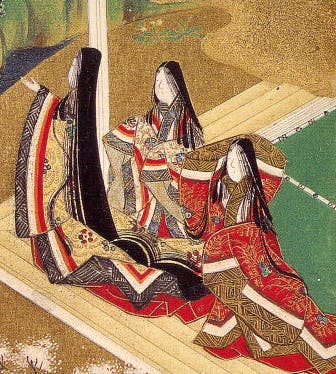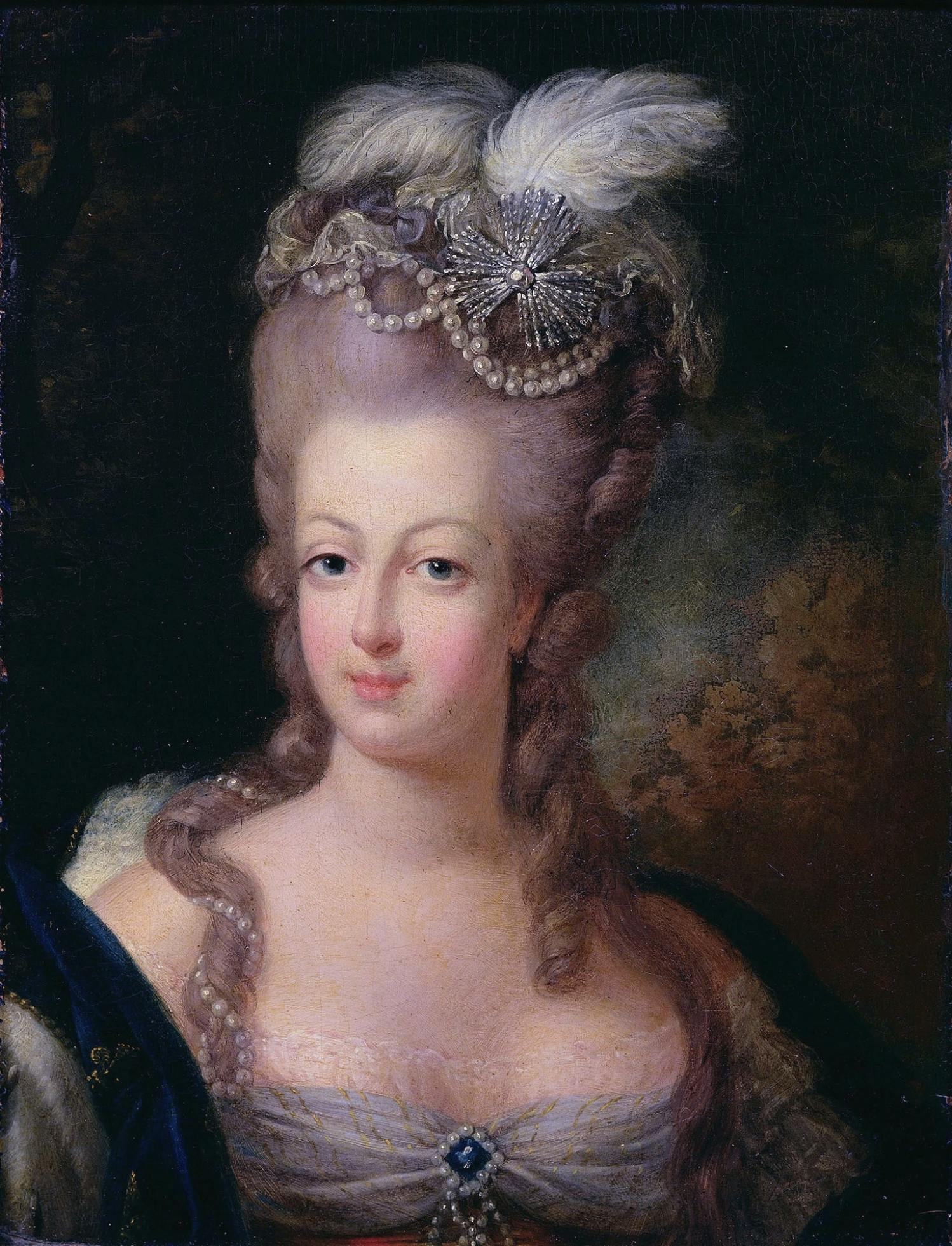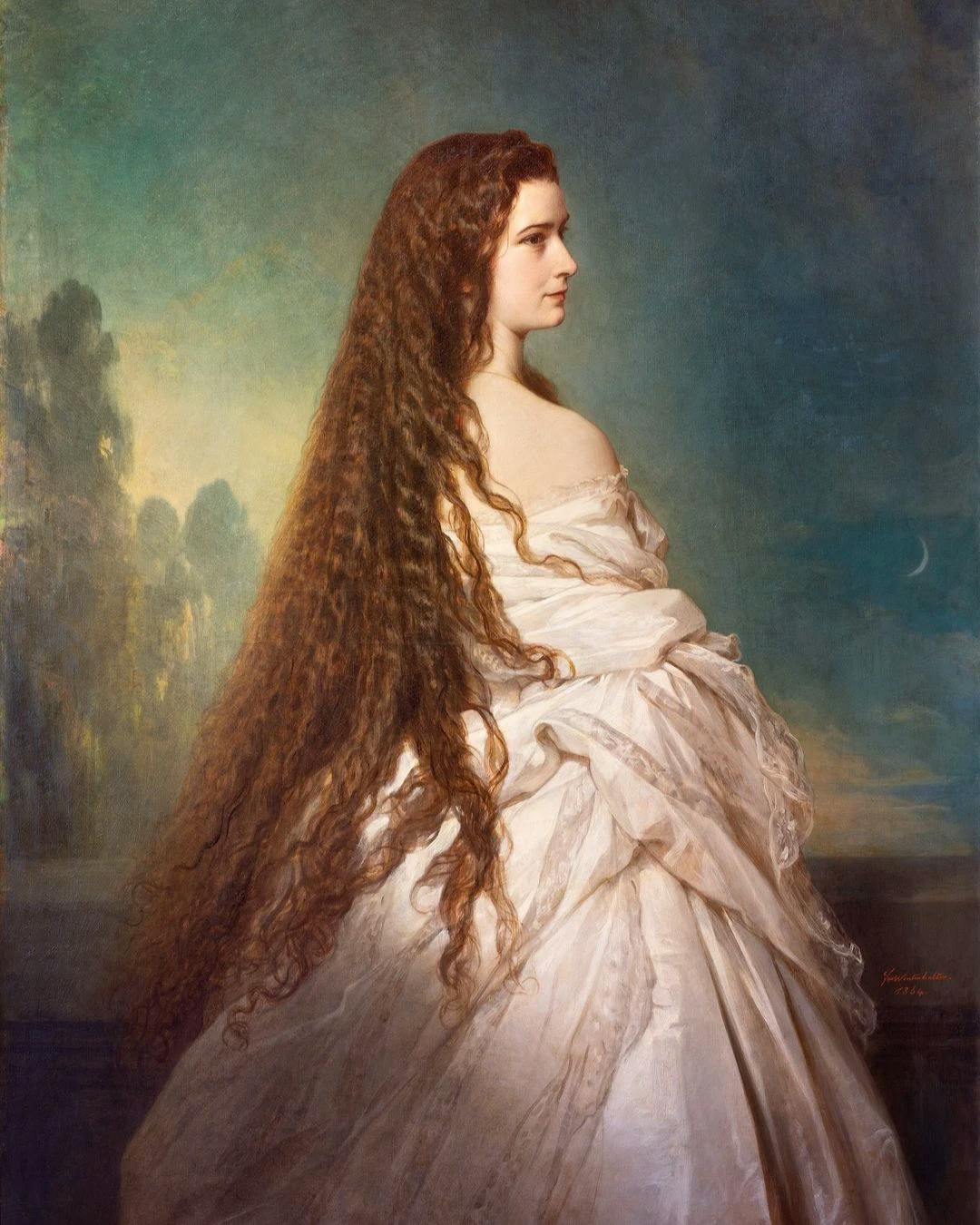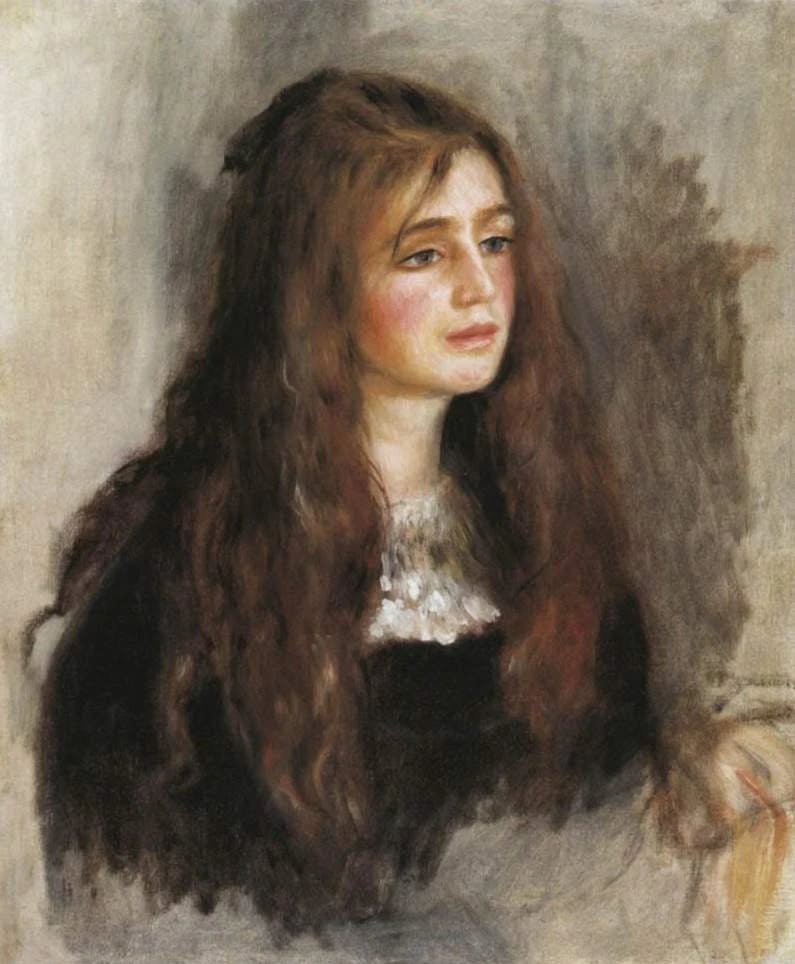The Evolutionary Explanation Behind Women’s Long Hair
One beauty standard that nearly all races, cultures, and ethnicities share is the expectation that women should have long hair. But why? And what significance does it hold?

Long hair was declared a feminine trait long before any other current beauty standard that we uphold. And numerous studies have proven that men prefer long hair on women, not just today, but throughout history as well.
The Long History of Long Hair
In order to understand the broader significance of hair throughout time, let’s rewind. Since Biblical times, women were believed to maintain long hair while men kept comparatively shorter manes. In ancient Greek and Roman cultures, long hair was associated with power and wealth. All aristocratic royal families, men included, had long hair, while prisoners and servants, who possessed a lowly socioeconomic status, were forced to shave their heads. The same trend was present throughout the Renaissance, Victorian, and colonial ages across the globe. The theme of equating hair with power was even carried into World War II, when the Nazis subjected Jewish prisoners to buzzcut hairstyles. History has proven time and time again that long luscious hair signifies wealth and power, so the lack thereof represents poverty and oppression.

Epitaph of Nikolaus Lindner by Anonymous, c. 1511.

Illustration of The Tale of Genji, by Tosa Mitsuoki (1617–1691).

Marie-Antionette, c. 1775.

Empress Elisabeth of Austria by Franz Xaver Winterhalter, 1865.

Portrait of Julie Manet by Renoir, 1894.
But while men have cut their hair shorter over time, women have not. So why the difference in hair length all of a sudden? There’s actually an explicit explanation for this trend in the Bible which historians believe has fueled this cultural norm for centuries; while women are praised for having long hair, men are shamed. 1 Corinthians 11 states, “Does not even nature teach itself that if a man has long hair, it is a disgrace to him, but if a woman has long hair, it is a glory to her.” Furthermore, the reinforcement that men find long hair attractive and feminine could be an additional motive for women to maintain long hair.
In addition to a status symbol or religious ritual, having long, thick hair represents health and youth. Long hair can be associated with good hygiene and healthy habits no matter what nationality or culture you belong to. In fact, hair loss is oftentimes one of the first and most telling signs of illnesses like cancer, immune dysfunction, or infection. Long hair indicates that your body is fostering growth as it should. And therefore, it can also be interpreted as a sign of a fertile woman.
Recent scientific studies have uncovered important correlations between hair length and age; for example, younger women tend to have longer hair than older women, and hair quality is directly correlated with a woman’s health. One school of evolutionary psychology makes a convincing case. It says that men are attracted to long hair, which signifies a youthful and healthy woman because she’s likely more fertile and able to give them children.
Current Trends
The majority of American pop stars, actresses, influencers, and models have long hair, or at least medium-long hair. Public figures such as these oftentimes set the stage for cultural trends and beauty standards, so it’s no wonder that nearly 70% of U.S. women have medium to long hair.
But not all celebrities have long hair. Think back to 2007 for a moment when Britney Spears walked into a salon in Los Angeles and shaved her head. And recall how the press reacted to Spears’ decision – her new hairstyle choice was met with disgust and ridicule. In fact, many magazines noted that this erratic behavior was one of her first cries for mental health help. When reflecting on the ways that we as a society respond to the lack of a woman’s hair, it’s evident how ingrained the custom of feminine long hair is in our culture.
Furthermore, copying celebrities is by no means the only motive for women to maintain longer hair. Women may want long hair for religious, lifestyle, professional, or a variety of personal reasons. Hair is one of the most prominent aspects of our appearance, so individuals use hair length and style to make statements about their culture, level of femininity, and how they view themselves. The deeply ingrained historical trend of long hair alone could be a cause for encouraging future generations of women to grow out their hair.
On a more affective level, long hair makes women feel more beautiful, powerful, strong, wealthy, and confident. Women with long hair are also more likely to get attention from men – and this positive reinforcement from men could be either a conscious or subconscious motive. Long hair also has historically been depicted as sexy. Many movies use scenes of men running their fingers through a woman’s long, thick hair to illustrate sexual tension or arousal. On a more objective note, longer hair has more styling capabilities than shorter hair. It can also be used to cover up or draw attention away from a woman’s other insecurities. Clearly, there are a whole host of explanations for why women have had and continue to have long hair.
Closing Thoughts
Why should we care about the history of women’s long hair? Firstly, long hair is one of the many examples of characteristics that have an evolutionary explanation for its desirability. Long hair, along with curvy hips or a large chest, is a symbol of fertility. This, therefore, is more attractive to a man because of the subconscious instinct to reproduce. Secondly, it’s beneficial to deconstruct the logic behind the beauty standards that we uphold to learn why and how society has arrived at its current conclusions. Hair is an integral part of every woman’s appearance and can oftentimes be an extension of her identity. Women of different cultures wear and style their hair differently than others, but the hair diversity across the globe is what makes hair one of the most sacred physical features we have.
Love Evie? Sign up for our newsletter and get curated content weekly!